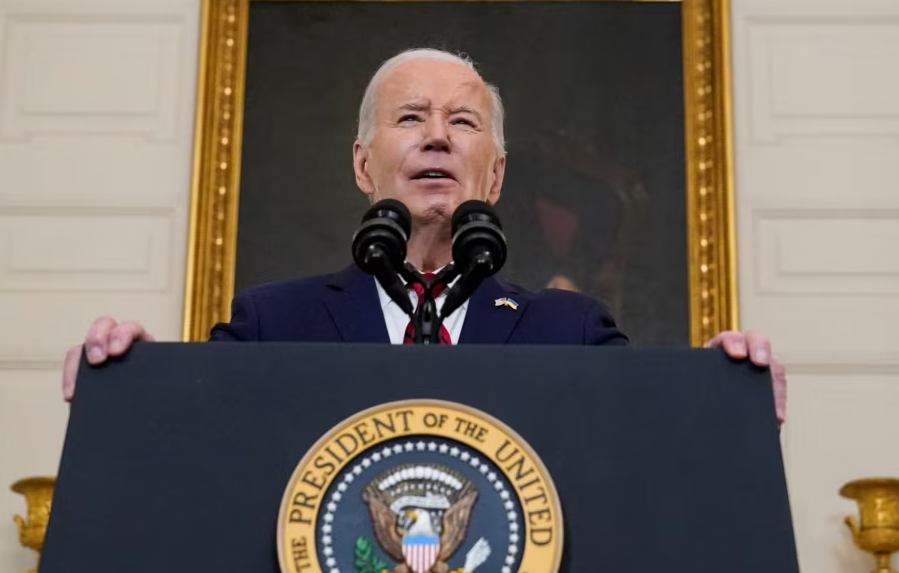Zhang Wenzong, Associate Research Fellow, CICIR
Sep 11, 2024
In the run-up to the 2024 election, we can see how domestic politics bring changes to U.S. foreign policy. Interest groups in crucial swing states will play an outsize role in U.S. policy formulation, and their influence will extend beyond their actual voting power.
Jade Wong, Senior Fellow, Gordon & Leon Institute
Jun 07, 2024
Facing a choice of autonomy or continued dependence on the United States, some factions on the continent seek to avoid that stark choice. In pursuit of a European pillar within NATO, the EU appears to be navigating a middle path.

Sun Chenghao, Fellow, Center for International Security and Strategy of Tsinghua University; Visiting Scholar, Paul Tsai China Center of Yale Law School
Ezgi Koklen, Research Assistant, Ankara Center for Crisis and Policy Studies
Apr 26, 2024
While the United States has come through for its allies in Europe, Israel and Ukraine for now, there is reason for concern. Depending on who is elected U.S. president in November, securing further U.S. support could become increasingly difficult. If Donald Trump wins, there could be trouble ahead.
Zhong Yin, Research Professor, Research Institute of Global Chinese and Area Studies, Beijing Language and Culture University
Apr 19, 2024
Fabricating a strategic architecture by uniting Japan, the Philippines and Australia with the United States will only accelerate the transformation of the region into opposing camps and drag the big powers into a dangerous Thucydides trap.
Richard Javad Heydarian, Professorial Chairholder in Geopolitics, Polytechnic University of the Philippines
Feb 26, 2024
A New Cold War is not in the interest of either the U.S. or China, particularly given the volatility in the Middle East. In fact, the two nations share common interests in the region, and the threat of widespread conflict should inspire an element of strategic sobriety and tactical cooperation.
Zhong Yin, Research Professor, Research Institute of Global Chinese and Area Studies, Beijing Language and Culture University
Feb 20, 2024
America’s actions that are directly detrimental to China’s interests render China’s cooperation in some regions irrelevant. The good news is that China and the U.S. have agreed to strengthen cooperation. But to ensure concrete results, the U.S. needs to do more.
Brantly Womack, Professor, University of Virginia
Dec 14, 2023
The Indo-Pacific aims to contain China's influence but struggles with unclear membership and diverse objectives. By contrast, the economic region of Pacific Asia, centered on China, emphasizes interdependence, but grapples with political uncertainties due to concerns about overreliance on China. The member states of both have agency and will pursue their own interests, but China’s behavior will likely determine which grouping has the greater strategic salience.
Earl Carr, Founder and Chief Executive Officer at CJPA Global Advisors
Nathaniel Schochet, Analyst and CJPA Global Advisors
Sep 05, 2023
Amid rising geopolitical tensions in the Indo-Pacific region, the Biden administration orchestrated a significant breakthrough by fostering closer relations between South Korea and Japan. This shift is underscored by a recent trilateral summit involving the U.S., Japan, and South Korea, where leaders addressed shared challenges posed by China and North Korea. This collaboration signifies a critical step towards regional security, economic resilience, and a unified approach to navigating the dynamics of the Indo-Pacific.
Zhai Kun, Professor at School of International Studies; Deputy Director of Institute of Area Studies, Peking University
Yin Ke, PhD candidate at the School of International Studies, Peking University
Sep 05, 2023
The ongoing Second Thomas Shoal incident could trigger misjudgments and a wider conflict. Keeping the peace will require a comprehensive approach to crisis management, especially where foundational principles are involved.
Chen Jimin, Guest Researcher, Center for Peace and Development Studies, China Association for International Friendly Contact
Jul 27, 2023
America’s Indo-Pacific Strategy is not only at odds with the regional vision to which ASIAN is committed but it affects the region’s development environment. As a result, ASEAN will steer a middle course to protect its central role.